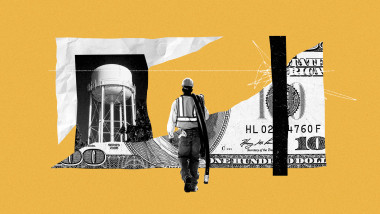Why it's more expensive for Black towns to borrow money ( grist.org )
When cities need to raise money for roads and water lines, they have a few options. They can raise taxes, for instance, or charge fees for city services. If that isn’t enough, though, they can also issue bonds, borrowing on a $4 trillion credit market to pay for new construction projects they can’t afford otherwise. These municipal bonds function like loans that banks and investors make to local governments, and they’re an essential tool for filling out city budgets.
“This is how your sewage gets funded, this is how your water gets funded, this is how public schools and public services are funded,” said Matthew Wynter, a research professor of finance at Stony Brook University.
But a growing body of research shows that this credit market is also helping perpetuate systemic racism. When Black towns and cities try to borrow money on the bond market, they pay higher interest rates than their white counterparts. A paper published last week in the science journal PLOS One finds that this “Black tax” amounts to as much as $900 million per year in the United States. These higher borrowing costs can prevent these towns from pursuing much-needed infrastructure upgrades, or push them toward default and bankruptcy if they fall behind on interest payments.
While racial bias is accounted for in the municipal markets, climate change isn’t, according to the new research.
